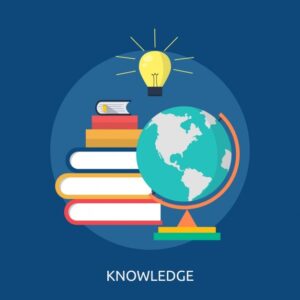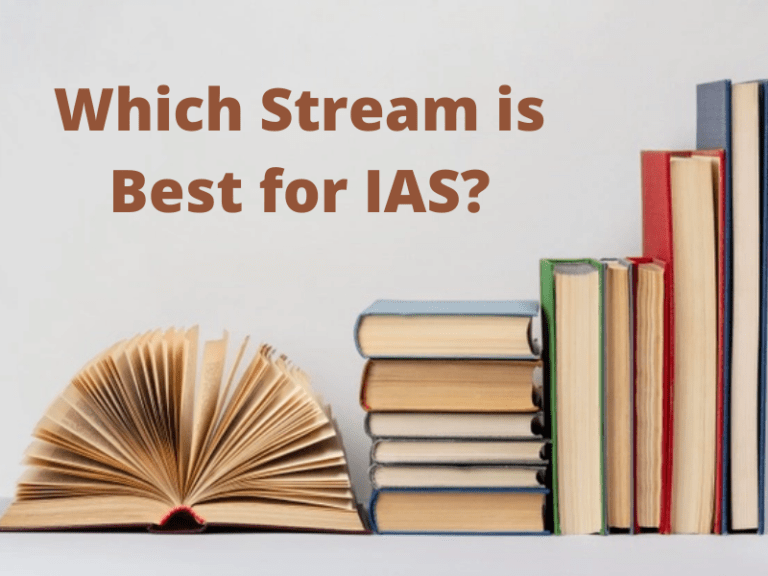The Indian Administrative Service (IAS), previously the Imperial Civil Service (ICS), is the Civil Services Examination and one of India’s most difficult competitive exams. The Union Public Service Commission holds it for the purpose of recruiting officers for the All India Administrative Civil Service.
IAS is the country’s permanent bureaucracy and is part of the executive branch. It is one of the three All India Services, and its cadre can work for the Union Government, State Governments, and public-sector organizations.
When Should You Begin Preparing for the IAS Exam?
Many youngsters who are born into a family of civil employees, like their elder relatives, aspire to work for the government. Children from such families begin preparing for the IAS Test immediately after finishing the class’s 10th board exam. The ideal age for taking the 10th board test is 16 years old. Such students find ample time to comprehend the IAS selection procedure and the requirements necessary in order to become an Indian administrative officer.
Beginning IAS training at an early age allows them to build a much better foundation for the IAS Exam. They must learn from NCERT books in schools during this period and can assist them in preparing for IAS at the same time. What is the best way to prepare for IAS after the 10th?
Which stream is best for IAS?
It is possible that many pupils want to be IAS officers. One of the most profitable positions in India is the Indian Administrative Service. After you finish Class 10, you might try to prepare for the examination if you desire. This will allow you to have a deeper understanding of the subject and perform well on the test. Thousands of applicants go from all across India to take part in the test. It will be fantastic to have an ambition of becoming an IAS officer as a student. After finishing class 10, you will be able to choose specific subjects.
When a student enters class 11th or begins a graduate program with the intention of taking the UPSC Civil Services Exam, he or she is faced with the decision of which stream to pursue, namely, Science, Commerce, or Humanities (Arts), which will be most beneficial in the UPSC IAS exam.
This problem is compounded for students who studied science or commerce until 12th grade but now wish to pursue a Humanities degree because the CSE curriculum is significantly oriented toward Humanities disciplines.
Although it is acknowledged that it is the candidate’s approach to the test rather than the stream that boosts the likelihood of success, there is no doubting that Humanities students have an advantage in that they have studied subjects that are repeated themes across all phases of the CSE.
The primary curriculum of General Studies’ papers includes disciplines such as history, public administration, political science, geography, psychology, sociology, and economics, among others (which have the maximum weightage across the Prelims and the Mains stages of the CSE). The subject stream also plays a vital role in selecting the IAS coaching.
At this point, it’s critical to keep your resolve and focus in order to devote your time and energy to mastering the fundamental principles. If you’re serious about starting IAS preparation alongside your schoolwork, you’ll need to be consistent and disciplined. It might be overwhelming to achieve both, but setting regular goals and developing conceptual understanding can strengthen your fundamentals and make your route to UPSC test success simpler.
To sit for the UPSC exam, candidates must have at least a bachelor’s degree from a reputable university or institute. Having a bachelor’s degree in a topic or stream related to the UPSC curriculum is advantageous. Even for optional courses that are required, candidates must pick two papers totaling 500 points.
As previously said, choosing Humanities in 11th grade or later during graduation helps students prepare effectively for the various levels of the IAS Exam.
Prelims

History, Political Science, Public Administration, Geography, Sociology, Psychology, Economics, and other subjects from the Arts stream are extremely crucial for the General Studies Papers in both the Prelims and Mains.
Mains
General Studies
There are four papers in the General Studies category. Just taking a look at the courses you’ll be studying will persuade you that the Arts stream is ideal for preparing for the IAS Exam.
GS 1 – 250 Marks
- History of India and world
- Geography
- Society & Culture
GS 2 – 250 Marks
- Polity & Governance
- Social Justice & IR
GS 3 – 250 Marks
- Science & Technology
- Economic & Developmental Issues
- Environmental Issues
- Internal Security
- Disaster Management
GS 4 – 250 Marks
- Ethics
- Integrity & Aptitude
Papers I and II on Optional Subjects (250 marks + 250 marks)
Apart from General Studies, a large number of courses from the Arts stream are included in the list of Optional Subjects that UPSC enables candidates to select from.
The topics mentioned below, which are available in the Humanities stream, are also eligible for UPSC’s Optional Subject Papers.
- History
- Political Science
- Economics
- Geography
- Sociology
- Psychology
- Philosophy
- Public Administration
It should be noted, however, that most schools/colleges and boards/universities offer alternative combinations of the above-mentioned disciplines (and also apart from them). Optional disciplines including sociology, geography, and public administration have proven to be popular among IAS candidates.
Interview

In every interview, the Interview Board may ask any questions it deems appropriate in order to assess the candidate’s fitness for the position in question. When it comes to the last and last step of the IAS Exam, the same can be said about the UPSC Interview Board.
As a result, choosing the Arts stream may assist you in answering questions during the interview. For example, UPSC may ask you a question that is linked to your Optional topic selection. Furthermore, because choosing Arts assists you to study better and hence score higher for various Papers at various levels of the Civil Services Exam, it’s no surprise that the majority of IAS hopefuls either choose Arts in class 11th or switch to Arts for graduation.
For preparing the way is to enroll in an IAS Coaching. Benefits of IAS Coaching are:
1. Exclusive Study Material
Exclusive notes and materials are prepared by top-rated IAS coaching institutes. This enables students to obtain the necessary study materials from a professional standpoint. Such study materials are created after a comprehensive review of the subject, examination format, previous year’s question papers, and other factors. This allows you to cover more subjects in less time.
2. Time Management

When it comes to schoolwork, we all have a plethora of justifications. Keeping track of time appears to be a difficult endeavor. The IAS coaching institute instills discipline in kids by providing them with a set of guidelines to follow. Attending courses on a regular basis, completing assignments on time, taking frequent tests, and practicing question papers, among other things, aids with time management. Furthermore, students will get insight into how to organize their studies so that they may finish the curriculum at least two months before the tests.
3. Proper Guidance
Mentors and teachers are knowledgeable, and they provide you with sound advice based not just on human psychology but also on an assessment of your unique limitations and talents. They bring forth your greatest qualities. It is also recommended that you attend classroom IAS coaching rather than online IAS coaching.
4. Performance Evaluation
There aren’t many coaching centers in the country that conduct frequent applicant evaluations. Different coaching institutes give their students weekly, unit, and monthly performance assessments as well as constructive criticism to ensure that their performance meets the IAS test criteria.
5. Interaction with Other Aspirants
The IAS test is tough to pass, and candidates sometimes lose motivation in the middle of their studies. Seeing other IAS students working hard and studying long hours in preparation for the IAS test inspires students to strive for success. With such a diverse group of students from all across the nation, each student adds to their way of thinking and preparing for the exam, which might be useful to other IAS aspirants.
Humanities is The Way To Go
It is recommended that you choose the Arts stream since it will help you to better prepare for and score higher on all three phases of the IAS Exam. So it’s no surprise that if you choose Humanities in class 11th, you’ll have a greater chance of passing the IAS Exam. Switching to Arts when choosing a path at graduation may also help you prepare for the CSE.
Conclusion
Aside from choosing and studying the disciplines offered by the Arts stream, there is much more to consider. Essentially, it is your own interest in the topic and, as a result, the stream that you choose that will help you prepare for the IAS Exam.
If you must go from a Science or Commerce to an Arts stream to begin your graduation, be sure you can acquire an interest in the courses involved. Otherwise, it would be a complete waste of time and effort because it would have no bearing on your preparation for the IAS Exam. IAS coaching can help you to get better at the different subjects and make you confident in giving the exams.
